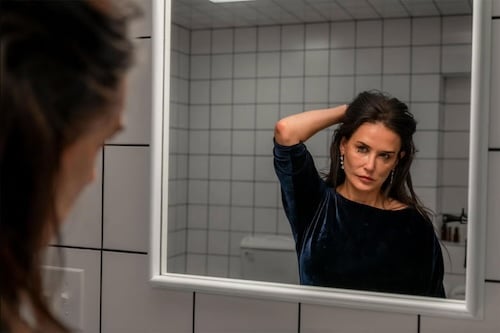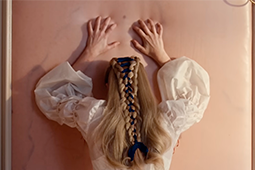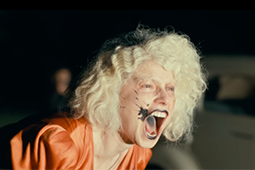
How many horror movies do you think have triumphed at the Oscars? Whatever number you have in your head, round it down, because the total is dismayingly, bafflingly low.
To nuance the argument a bit, I'm primarily talking about horror movies that have won the so-called 'above the line' awards – in other words, Best Picture, Best Director, Best Actor, Best Actress, Best Original Screenplay or Best Adapted Screenplay. Even with this caveat, the numbers are shockingly thin.
In reality, only one horror film, The Silence of the Lambs, has won Best Picture in the history of the Academy Awards (which dates back to 1929), and that's surely more of a psychological thriller with horrific overtones.
It doesn't exactly scream (no pun intended) impartiality.
Jonathan Demme's riveting adaptation of Thomas Harris's novel is notable in other ways. It's one of only three films to have won the 'Big Five' of Picture, Director, Actor, Actress and Screenplay (the others being 1935's It Happened One Night and 1975's One Flew Over the Cuckoo's Nest).
Of course, to play devil's advocate, there are a great many horrors that have won individual Oscars in the above-line and below-line categories. To name a few: Rosemary's Baby (1968) won Best Supporting Actress for Ruth Gordon, The Fly (1986) won Best Make-Up for Chris Walas, Misery (1990) won Best Actress for Kathy Bates and Get Out (2017) won Jordan Peele a historic Best Original Screenplay Oscar.
Still, one could be forgiven for thinking that the Academy's relationship with horror is sketchy at best. Is it too much to ask for horror movies to be recognised more frequently and profusely for their artistic and technical pedigrees?
Enter The Substance, the breakout horror hit from writer-director Coralie Fargeat, which is returning to Cineworld screens as part of our Awards Season. The movie has been nominated for five Oscars, Best Picture, Best Director, Best Original Screenplay, Best Actress (for Demi Moore) and Best Make-Up and Hairstyling.
If we're imagining The Substance has a chance of across-the-board success on the big night, then it has a chance of rivalling the haul taken by The Silence of the Lambs. The only absence would be Best Actor. That said, it's not worth quibbling over numbers and fractions. The real joy comes in the fact that The Substance has been recognised at all, particularly in the so-called 'prestige' categories.
The last horror film to even get a Best Picture nomination was the aforementioned Get Out – before that, it was Black Swan (2011), which nabbed a Best Actress win for Natalie Portman. Before that, you're talking about The Sixth Sense (1999), which was all nominations and no victories, The Silence of the Lambs and Jaws (1975), which got Oscars for Best Editing and Best Original Score for John Williams.
The first horror movie to ever land a Best Picture nod was The Exorcist in 1973. That's 44 years after the Academy was founded. The film scored 10 Oscar nominations overall and yet only translated two of those nominations into wins: Best Adapted Screenplay for William Peter Blatty (who adapted his own book) and Best Sound.
Stacking all that up, one can recognise the dearth of artistic, Oscar-led achievement within the wider canon of horror cinema. This further underlines the significance of The Substance as a breakout and historic horror movie.
For an institution that's often accused of awarding 'cozy', box-ticking fare, the Oscars have taken a commendable gamble in nominating Fargeat's film. It's not an experience that's easily absorbed (that's a loaded term, given the events of the storyline), and nor should it be.
The film uses the fleshy, body horror machinations of the aforementioned The Fly as a vessel to interrogate much more nebulous, though no less troubling, conceits. Primarily, the film is an attack on the appalling beauty standards faced by women over a certain age in Hollywood (this can be extended to most industries around the world).
It is also a deep-seated story of an identity in crisis, self-loathing and addiction. The last of those is key: it's not merely a drug addiction that causes written-off actress Elisabeth Sparkle (an incendiary Demi Moore) to use the titular Substance and spawn a newer, younger version of herself.
The Substance dares to suggest that identity is itself an all-consuming addiction, and when one's sense of self-preservation begins to fade, that's when the need for a particularly extreme fix kicks in. Said fix spawns (in delightfully gross fashion), out of Elisabeth's back: a younger version of herself who is subsequently dubbed Sue (Margaret Qualley).
Fargeat plays fast and loose with the connection between the two women. They're continually reminded to 'respect the balance': they are two separate physical bodies but ostensibly share the same soul. While Elisabeth festers in resentment, isolated in her Hollywood home, Sue's sexuality is absorbed by the parasitic Hollywood machine, as represented by the latter's hideous, shrimp-chewing boss Harvey (Dennis Quaid).
Sue, therefore, experiences the same trappings of success that Elisabeth once enjoyed. But how can we be sure that one body, which is compelled to go comatose for a week while the other is active, is aware of what the other self is doing? If Elisabeth isn't aware of Sue's success, what is in it for her?
Fargeat, to her credit, doesn't get bogged down in these details too much, instead leaving it for the viewer to decide. Her target is the wider system of ideology, cruelty and corruption, and the film is uncompromising in its approach, using harsh lighting (all the better for highlighting those fleshy imperfections) and Raffertie's harsh industrial score to drive the point home.
Again, The Cider House Rules this ain't. The Substance is a challenging, often deliriously ugly experience, taking us up close and personal to emotional and, as it goes on, physical extremities that we're all too willing to turn away from.
It's the antithesis of so much that gets Oscar-nominated, and the prospect of such transgression being rewarded with the highest prize in Hollywoodland is exciting and amusing in equal measure. Even The Silence of the Lambs was better behaved than this.
Fargeat has a past form in taboo-breaking cinema. Her breakout film was 2017's Revenge, a rape-revenge fantasia that included such delights as a piece of glass shooting into a hideous abuser's exposed foot.
Subtlety wasn't in its register and isn't relevant when it comes to The Substance either. But who needs it when a film can tickle intellectual curiosity and induce yelps of appalled glee in equal measure? The triumph of The Substance is its ability to be high and low, subtle and crass, intelligent and ridiculous at the same time.
Very often, Academy voters like their movies to adhere to one idiom or the other. For one of their key Best Picture nominees to be so deliberately confounding, let alone a horror movie, is notable.
And no other Oscar nominee this year boasts the blood-spouting, head-regrowing spectacle of the Elisabeth/Sue hybrid known as Monstro Elisasue. The ghastly yet tragic revelation of Elisabeth's ultimate downfall gets the ultimate physical metaphor: hate absorbed by hate, old consumed by the young (or vice versa) and bizarre orifices that act as a direct reflection of Hollywood sexism.
The Substance is not only notable as the rare horror movie to receive multiple Oscar nominations. It's a very particular kind of horror movie that has been nominated, one that forgoes decorum and ably caters to the midnight movie audience as well as more discerning viewers.
The movie's Oscar nominations are significant for several other reasons. Fargeat is the first female director to ever be Oscar-nominated for a horror movie. Demi Moore has now received her first-ever Oscar nomination in a 40-odd-year career. She surely didn't expect it would be for a film like this.
If these nods convert into wins, let alone the other categories, The Substance will be further etched into pop culture history.
It's a pleasing reminder that, every now and then, the Oscars are willing to take risks, but this is surely the riskiest, and therefore the most memorable, in recent years. One hopes this olive branch is extended to horror movies more often in the future.
And if Monstro Elisasue doesn't at the very least yield a win for Best Make-Up and Hairstyling, I'm rioting.
The Substance can be seen again as part of Cineworld Awards Season on February 22nd.













.jpg)
.png)






